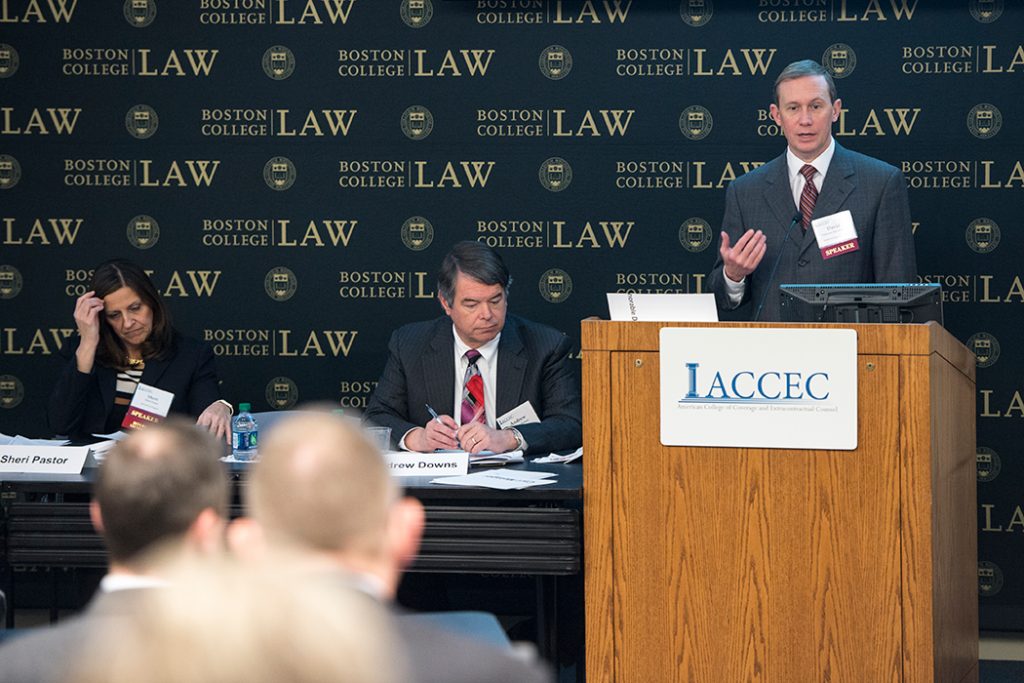Lawyers’ vulnerability to hacking is one of many weaknesses that emerging technologies are exposing in the insurance world. And it’s a reality that’s creating a lot of fear. “The Internet used to be fun…now it’s absolutely frightening,” said panelist Richard Traub of Traub, Lieberman at a January BC Law symposium.
Traub and his fellow panelists, lawyers Lon Berk of Hunton & Williams and Kate Browne of Swiss Re, focused on the threats of passive and active hacking and the way law firms are easy targets for cyber extortion. “The weakest link[s] in a Fortune 500 company are the lawyers because they’re most likely to click on a fake email,” said Browne.
That is among the reasons that attorneys should care about cyber-coverage and its associated risks as well as understand the importance of underwriting cyber policies that provide adequate coverage for the right technologies, the panelists stressed.
Their presentation was part of “The New Face of Insurance Litigation” symposium hosted by the Law School at the behest of the American College of Coverage and Extracontractual Counsel (ACCEC), an honor that Professor Patricia McCoy attributes to the reputation of BC Law’s insurance program. The event brought together more than 80 practitioners, students, and professors.
The eight panel topics included intellectual property disputes, the American Law Institute’s recent conversion of its Principles of the Law of Liability Insurance to the Restatement of the Law of Liability Insurance, and ethical issues that arise during disputed coverage claims.
McCoy, the inaugural Liberty Mutual Insurance Professor of Law at BC, helped organize the symposium and was on the panel discussing the emerging criminalization of directors and officers liability claims. In addition to praising the collaborative nature of the symposium, McCoy said that it “highlighted some of the most cutting-edge issues in insurance law.”
Shayna Sehayik ’16, who turned 26 this year and lost eligibility to enroll in her parents’ health insurance, attended the symposium to become an informed consumer with respect to insurance.
“I gained valuable insight on the other types of insurance that individuals, especially lawyers, need to grapple with,” said Sehayik, who is hoping to expand her knowledge of areas within the law that empower vulnerable plaintiffs. “It was also a phenomenal networking opportunity given the small-group discussions during lunch and the frequent mingling between panels.”


